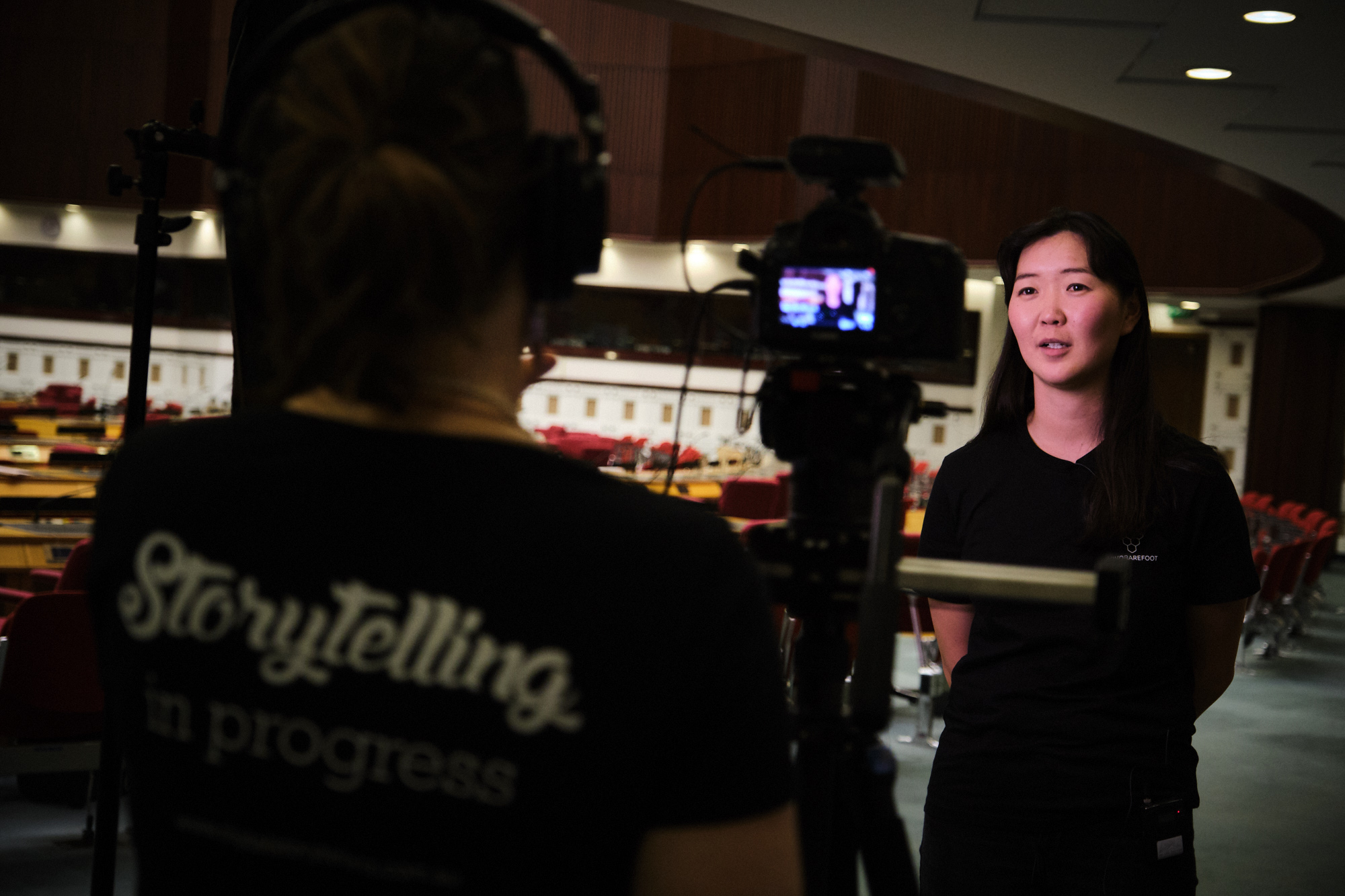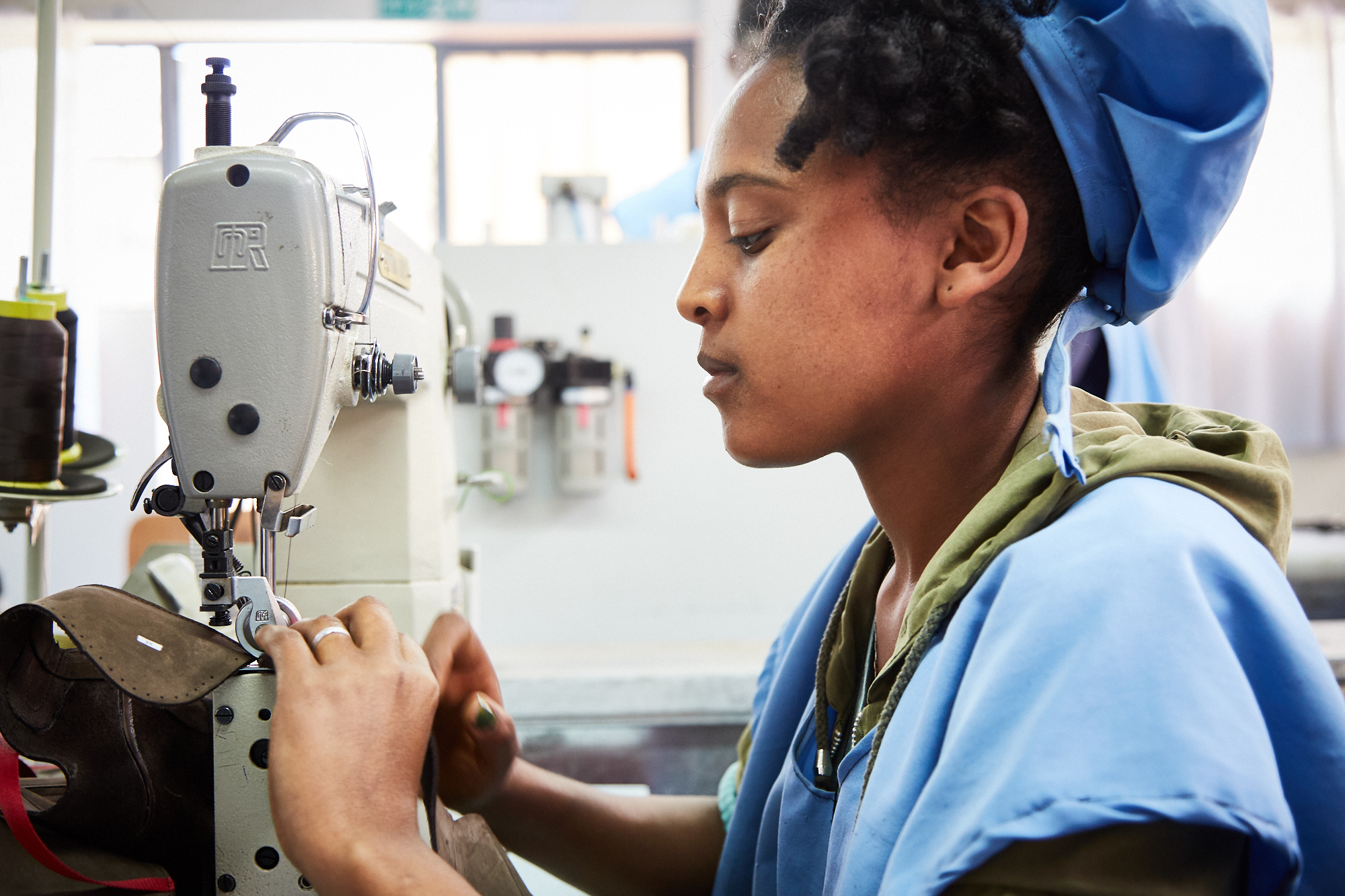Inclusive industrialization and sustainable human development in fostering decent jobs for women and youth in Ethiopia
In October 2019 Vivobarefoot presented the Soul of Africa social enterprise project at theSocial Enterprise World Forum. SEWF is the leading forum for international exchange and collaboration within the social enterprise and social investment sectors. The British Council hosted this year’s event, on October 23-25, in Addis Ababa, Ethiopia, a country that is home to 55,000 social enterprises.
Held for the first time in a developing economy, the event created a platform for on-going collaboration by connecting people across Africa and the rest of the world, the Forum was facilitated bythe British Council, the United Kingdom's international organisation for cultural relations and educational opportunities.
The Forum was held at the UN Conference center and the Soul of Africa project has an exhibition stall that attracted much attention of the participants. Overall,1,200 participants from over 40 countries attended the event, including social enterprise leaders, practitioners and policymakers.


Dulma Clark presented the project at the plenary session hosted by Imma Guixe from the EU delegation in Ethiopia. Dulma called the Ethiopian government to set up the minimum wage legal requirement in the country for the manufacturing industry and the role of social entrepreneurship in development sector. Ethiopia is going through a rapid industrialisation, as Asian wages rise and populations age, brands and manufacturers are turning to youthful and resource-rich Africa. Behind this rapid industrialisation, there are human-being full of love and hope not ‘cheap overheads and labour costs’. Currently, there is no minimum wage for garment workers in Ethiopia. The reported average wages for workers in the industry average 800-1,200 ETB per month (28 to 43 USD), roughly a quarter of the average monthly wages in China’s garment sector (BSR 2017). The production line in Ethiopia set up in 2017 pays x4 times more wages than average in the industry. Ethiopia as any other African country should not fall a victim of extensive consumerism as Rana Plaza in 2013. With this shoemaking project in Addis Ababa (however small it is) we wanted to show that businesses CAN do business and look after its people, create positive social & economic value and can become an example for the whole industry. As it was noted at the SEWF conference last year by Nicola Sturgeon: "There is a growing recognition that business can't simply be about the quest of profit, but the pursuit of benefit to society as a whole."


The benefits and costs of the industrialization process in Ethiopia must be managed for inclusive growth: to advance human development; uphold the basic human rights of all as a means to end poverty; and expand the choices of Ethiopians.
‘The aim of human development is to expand the choices every human being can make in their life, and to improve their opportunities. Through this simple concept, economic growth and income are best understood as means to human development but not ends in themselves. It is the richness of their lives, and not their economies, that people value‘. Ethiopia, The National Human Development Report, UNDP 2018

